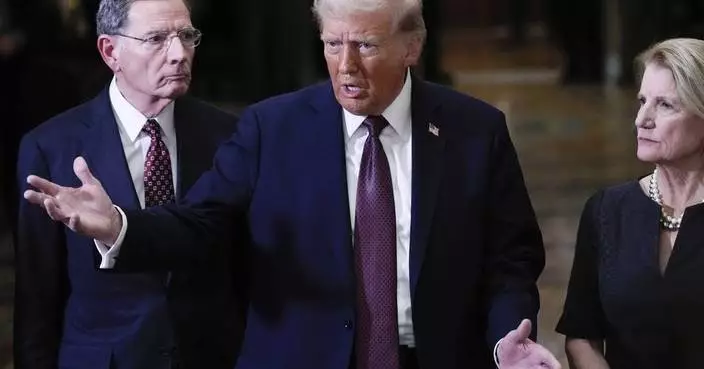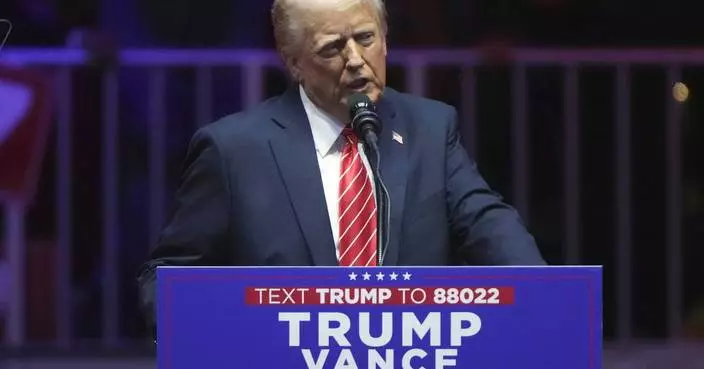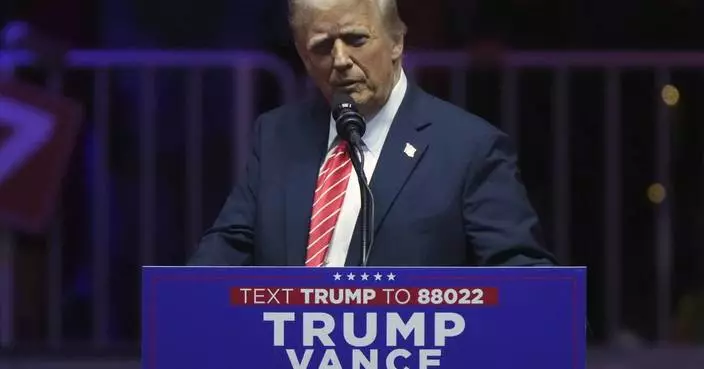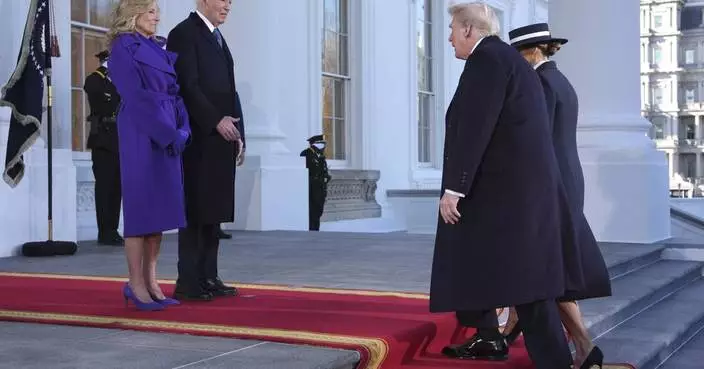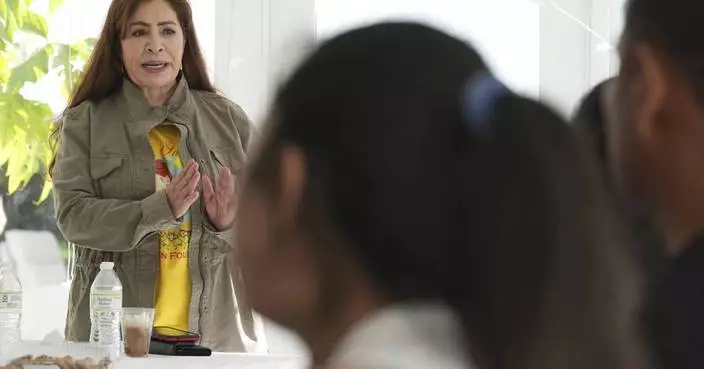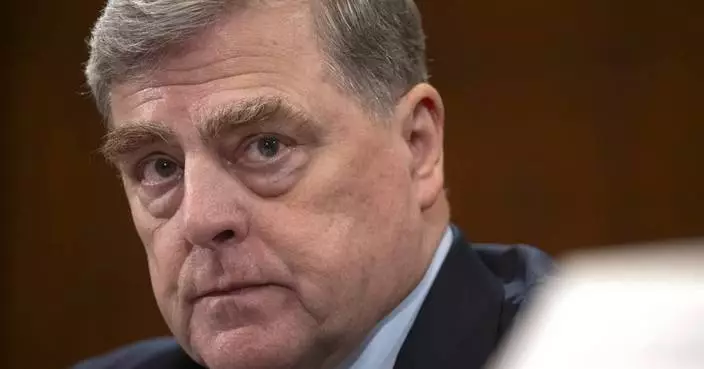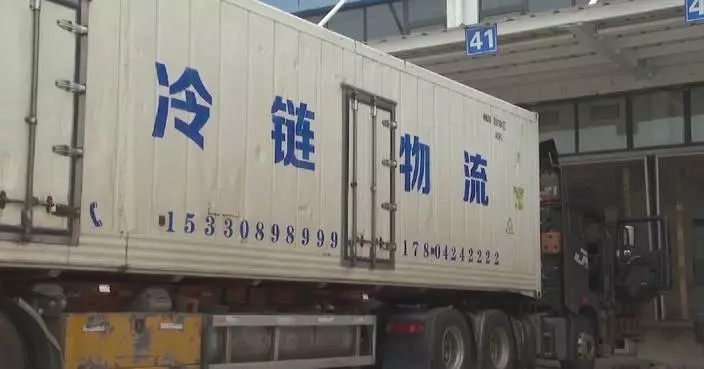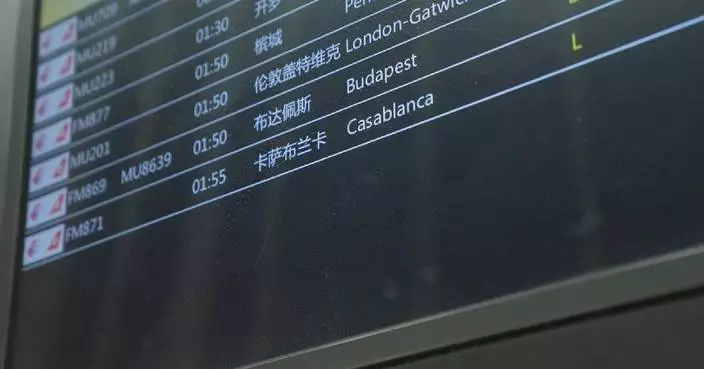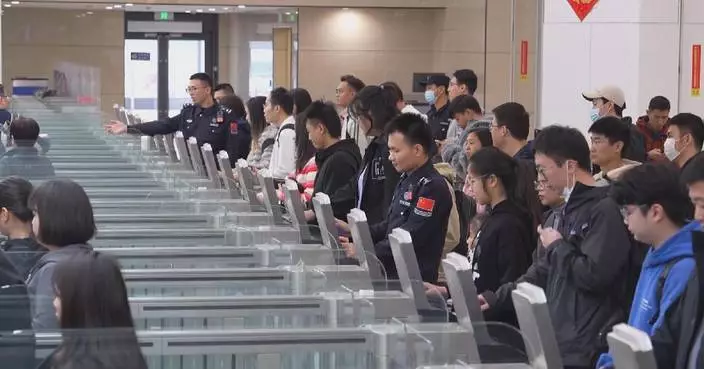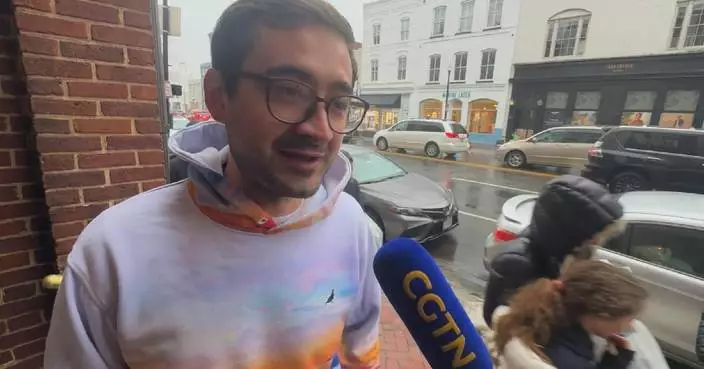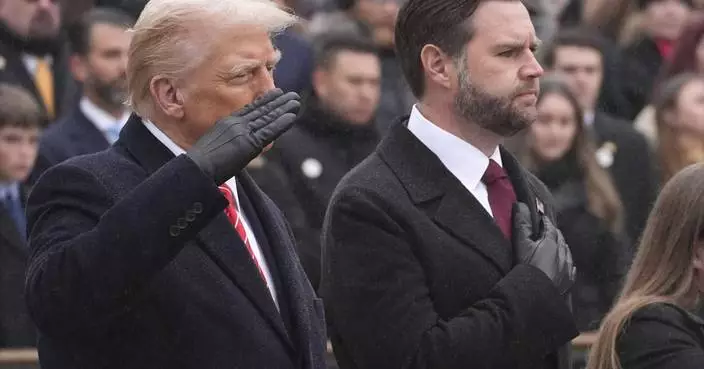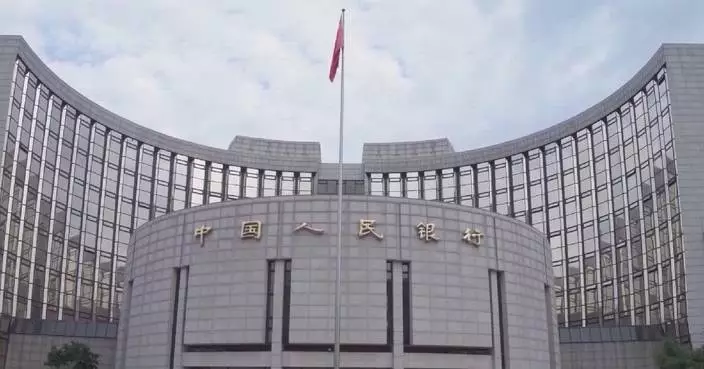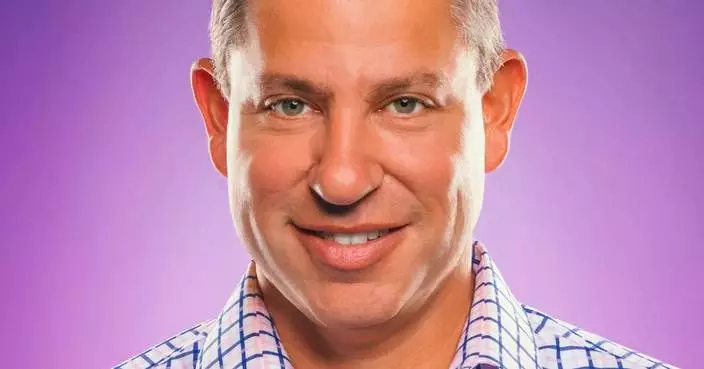NEW YORK (AP) — Health officials on Thursday said they don’t know how a Missouri person caught bird flu but believe it may be a rare instance of a “one-off" standalone illness.
Investigators trying to determine how the person caught the virus have not been able to confirm the exact strain of flu.
Centers for Disease Control and Prevention officials said the risk to the general public remains low. The Missouri case raised questions about the possibility of human-to-human bird flu transmission, but officials said there is no evidence of other people being infected.
“Right now, evidence points to this being a one-off case,” said Dr. Nirav Shah, CDC principal deputy director.
Unusual flu strains that come from animals are occasionally found in people. This year alone, health officials identified seven human cases of swine flu in the U.S., officials said. But this is the first time the surveillance system detected an avian flu like this.
The H5N1 bird flu has been spreading widely among wild birds, poultry, cows and a growing number of other animals. Its growing presence in the environment increases the chances that people will be exposed, and potentially catch it, Shah said.
Citing patient confidentiality, health officials have disclosed few details about the Missouri case, which was first announced late last week.
The person had chest pain, nausea, vomiting, diarrhea and weakness and was hospitalized on Aug. 22 “for reasons related to their underlying medical conditions,” Shah said.
The patient was tested for flu as part of the treatment and was positive for influenza A, a broad virus category. Subsequent testing — completed last week — found the bug to belong to category of viruses usually seen in birds and not people. However, the patient had a very low concentration of viral genetic material, leaving officials without the ability to full analyze it and confirm exactly which virus it is, Shah said.
Partial genetic sequences from the virus in the Missouri patient were similar to the same segments in viruses isolated from U.S. dairy cows, CDC officials said.
"Ultimately, a full sequence may not be technically feasible," Shah said.
The patient had no known contact with dairy cows or other animals associated with the ongoing bird flu outbreak. The person later told Missouri health officials that they didn't drink unpasteurized milk or dairy products, Shah said in a Thursday call with reporters.
The patient received antiviral medication and has since recovered and gone home, health officials said.
As part of their investigation, officials hope to draw blood from people who were around the patient to see if they show evidence of infection, Shah said.
The Missouri patient was the 14th person in the U.S. sickened with bird flu since March, when the virus was detected in cows. One other person was infected in 2022. All of those cases were relatively mild illnesses, and each patient had been in direct contact with infected animals.
U.S. health officials have been making preparations for vaccines and other measures, in case the bird flu does start spreading widely among people or begins causing severe illness.
On Thursday, the CDC announced it is partnering with five commercial lab companies so they can develop and conduct tests for H5N1 or other viruses. The agency initially is devoting at least $5 million to the agreements, and making plans to scale up to $118 million over the next five years if necessary, Shah said.
In the past, CDC developed its own tests during the early stages of new epidemics, with widespread testing not becoming available until later. That slowed detection of emerging infections.
The Associated Press Health and Science Department receives support from the Howard Hughes Medical Institute’s Science and Educational Media Group. The AP is solely responsible for all content.
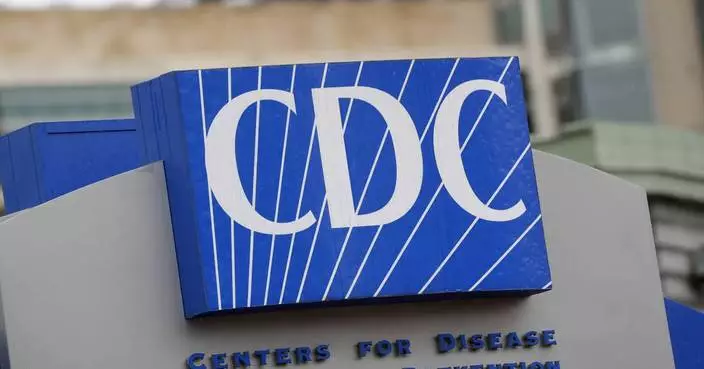
Officials call Missouri bird flu case a 'one-off' and say risk to public is still low
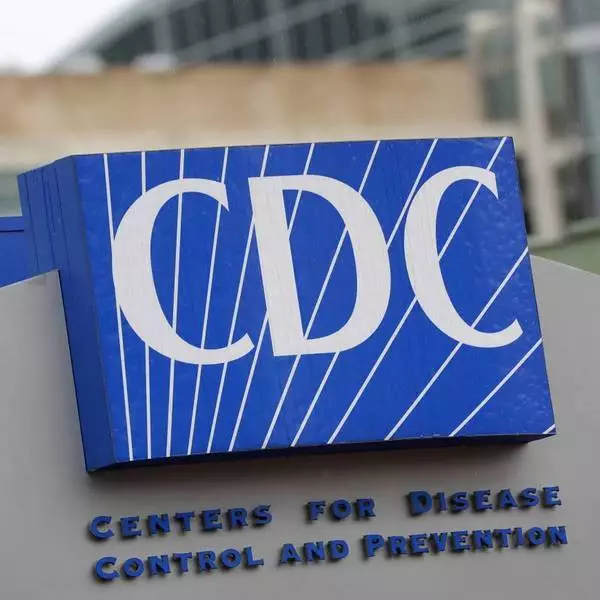
Officials call Missouri bird flu case a 'one-off' and say risk to public is still low
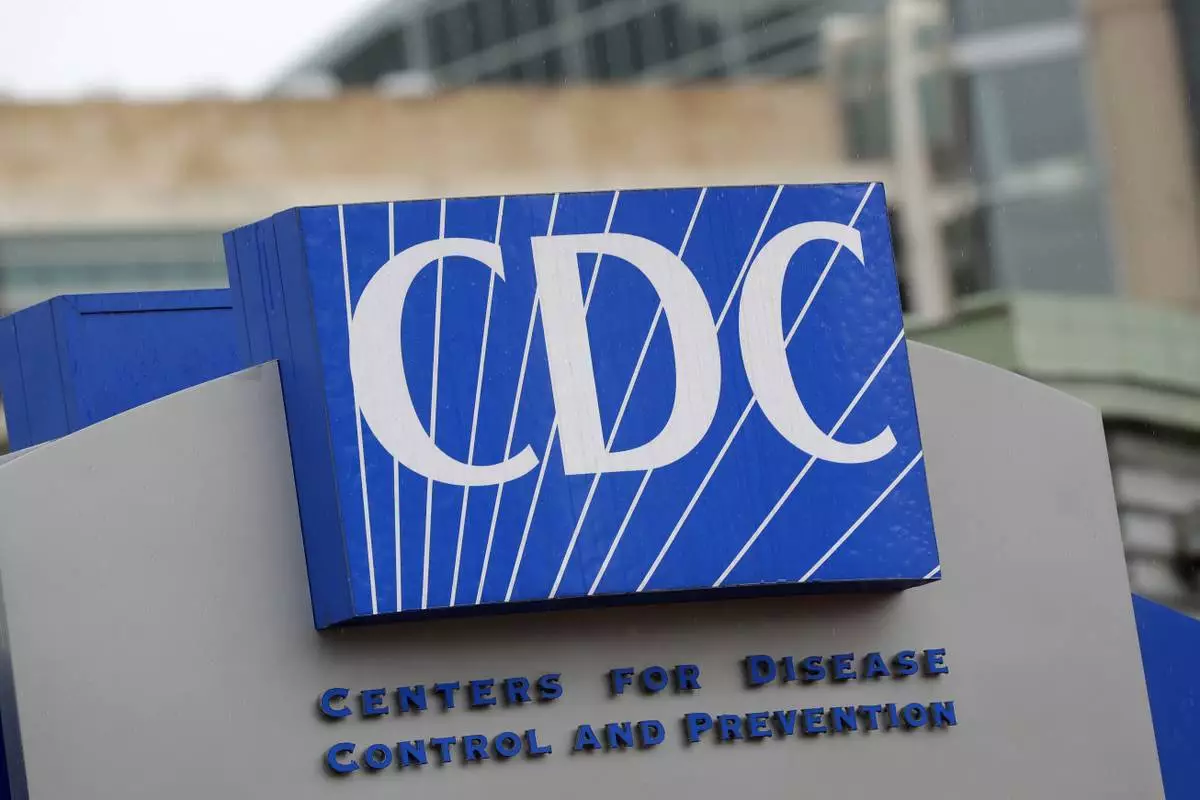
FILE - The Centers for Disease Control and Prevention is shown, March 15, 2020, in Atlanta. (AP Photo/John Bazemore, File)
LONDON (AP) — A British teen pleaded guilty Monday to murdering three girls and attempting to kill 10 other people in what a prosecutor said was a “meticulously planned” stabbing rampage at a Taylor Swift-themed dance class in England last summer.
Axel Rudakubana, 18, entered the surprise plea as jury selection had been expected to begin at the start of his trial in Liverpool Crown Court.
The July 29 stabbings sent shock waves across the U.K. and led to a week of widespread rioting across parts of England and Northern Ireland after the suspect was falsely identified as an asylum-seeker who had recently arrived in Britain by boat. He was born in Wales.
The attack occurred on the first day of summer vacation when the little girls at the Hart Space, a sanctuary hidden behind a row of houses, were in a class to learn yoga and dance to the songs of Taylor Swift. What was supposed to be a day of joy turned to terror and heartbreak when Rudakubana, armed with a knife, intruded and began stabbing the girls and their teacher in the seaside town of Southport in northwest England.
“This was an unspeakable attack — one which left an enduring mark on our community and the nation for its savagery and senselessness," Deputy Chief Crown Prosecutor Ursula Doyle said. “A day which should have been one of carefree innocence; of children enjoying a dance workshop and making friendship bracelets, became a scene of the darkest horror as Axel Rudakubana carried out his meticulously planned rampage.”
Prosecutors haven’t said what they believe led Rudakubana — who was days shy of his 18th birthday — to commit the atrocities, but Doyle said that it was clear he had a “a sickening and sustained interest in death and violence.”
Rudakubana had consistently refused to speak in court and did so once again when asked to identify himself at the start of the proceedings. But he broke his silence when he was read the 16-count indictment and asked to enter a plea, replying “guilty” to each charge.
He pleaded guilty to three counts of murder, 10 counts of attempted murder and additional charges related to possessing the poison ricin and for having an al-Qaida manual.
Rudakubana faces life imprisonment when sentenced Thursday, Justice Julian Goose said.
Defense lawyer Stanley Reiz said that he would present information to the judge about Rudakubana's mental health that may be relevant to his sentence.
The surviving victims and family members of those killed were absent in court, because they had expected to arrive Tuesday for opening statements.
Goose asked the prosecutor to apologize on his behalf that they weren't present to hear Rudakubana plead guilty.
He pleaded guilty to murdering Alice Da Silva Aguiar, 9, Elsie Dot Stancombe, 7, and Bebe King, 6.
Eight other girls, ranging in age from 7 to 13, were wounded, along with instructor Leanne Lucas and John Hayes, who worked in a business next door and intervened. Fifteen other girls, as young as 5, were at the class but uninjured. Under a court order, none of the surviving girls can be named.
Hayes, who was stabbed and seriously wounded, said he still had flashbacks to the attack and was “hugely upset at the time that I wasn’t able to do more.”
“But I did what I could in the circumstances,” he told Sky News. “I’m grateful to be here, and by all accounts I’ll make a full recovery, at least physically. … I’m going to be OK and others won’t be, and that’s really where I I think the focus of attention should be.”
Police said the stabbings weren’t classified as acts of terrorism because the motive wasn’t known.
Several months after his arrest at the scene of the crime, Rudakubana was charged with additional counts for production of a biological toxin, ricin and possession of information likely to be useful to a person committing or preparing to commit an act of terrorism for having the manual in a document on his computer.
Police said they found the evidence during a search of his family's home in a neighboring village.
The day after the killings — and shortly after a peaceful vigil for the victims — a violent group attacked a mosque near the crime scene and pelted police officers with bricks and bottles and set fire to police vehicles.
Rioting then spread to dozens of other towns over the next week when groups made up mostly of men mobilized by far-right activists on social media clashed with police during violent protests and attacked hotels housing migrants.
More than 1,200 people were arrested for the disorder and hundreds have been jailed for up to nine years in prison.
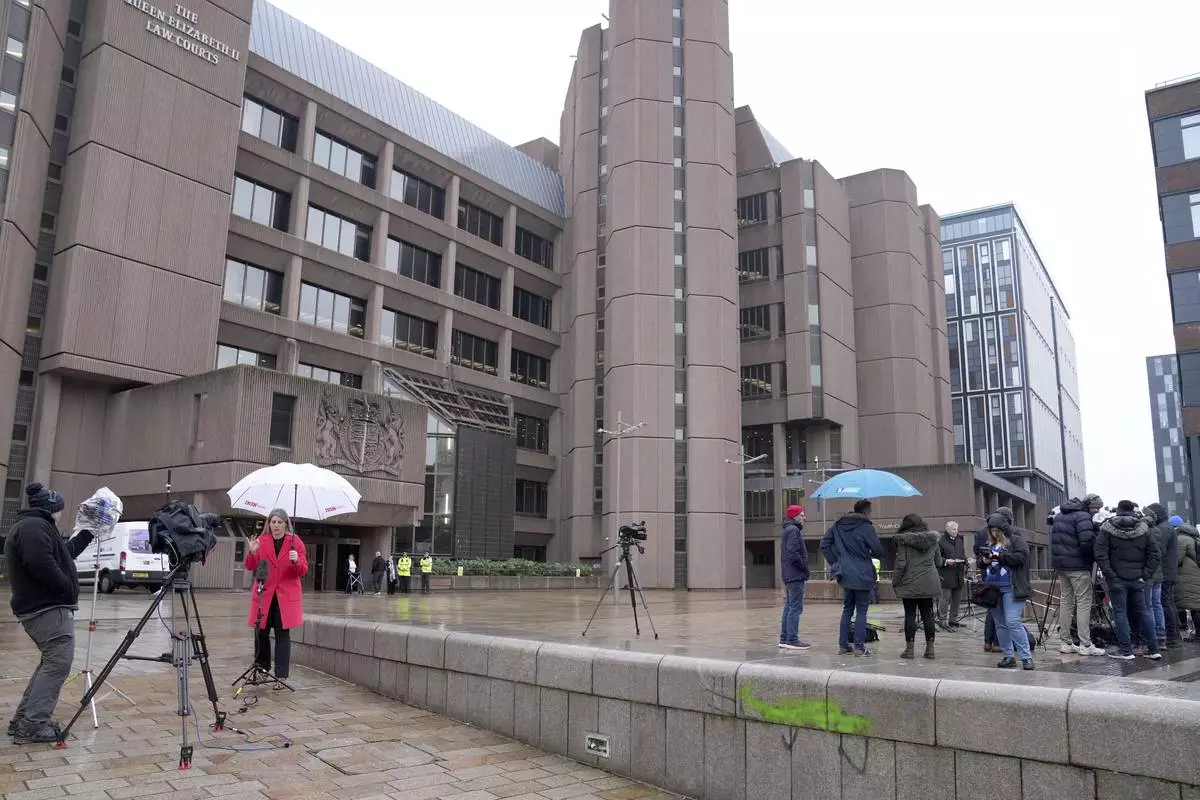
Media waits outside Liverpool Crown Court in Liverpool, England, Monday, Jan. 20, 2025 where Axel Rudakubana is charged with killing three girls and wounding 10 other people in a stabbing rampage at a Taylor Swift-themed dance class in England last summer.(AP Photo/Jon Super)
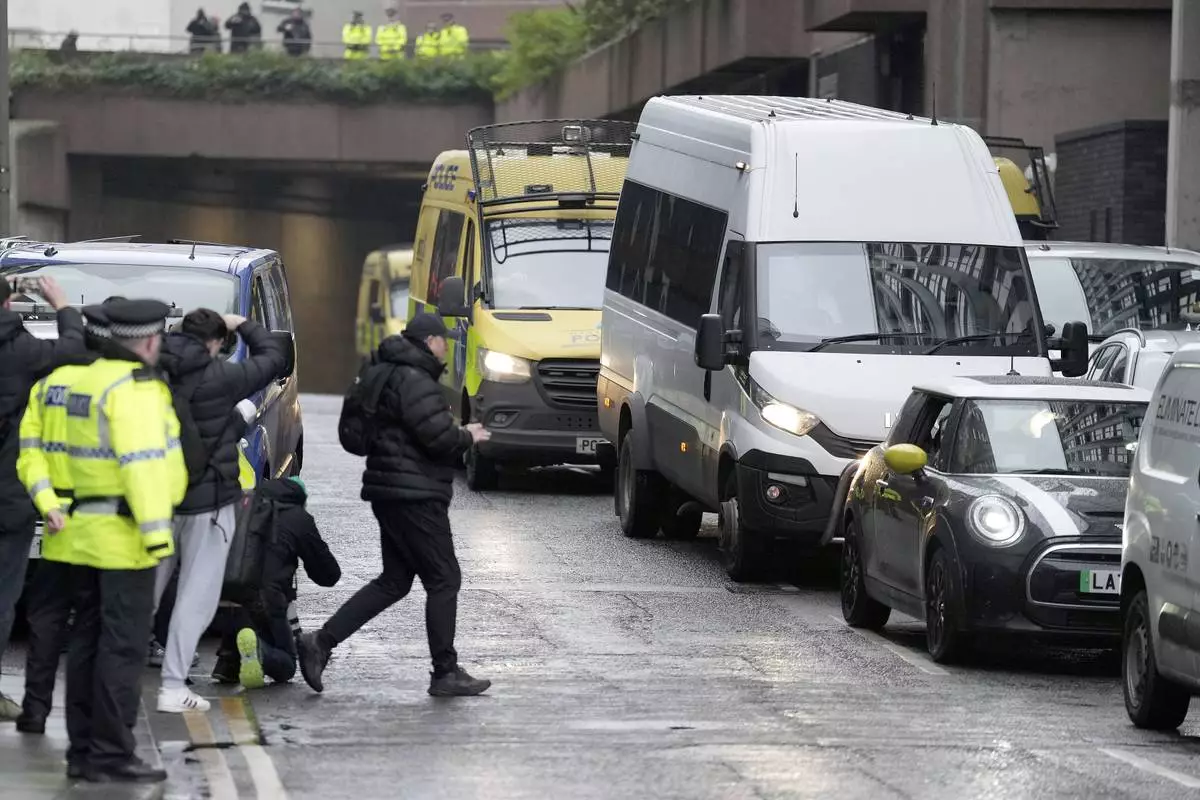
A prison van believed to contain Axel Rudakubana leaves Liverpool Crown Court in Liverpool, England, Monday, Jan. 20, 2025 where Rudakubana is charged with killing three girls and wounding 10 other people in a stabbing rampage at a Taylor Swift-themed dance class in England last summer.(AP Photo/Jon Super)
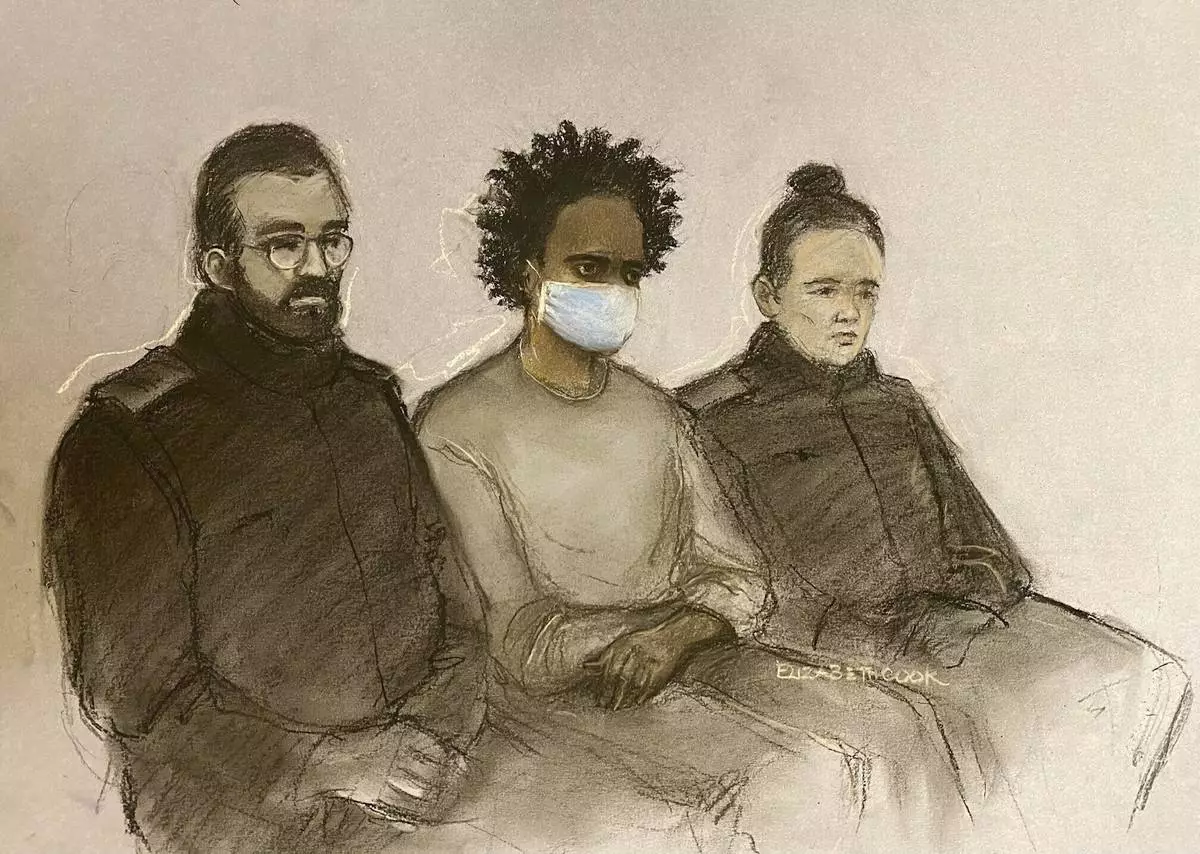
In this Court artist sketch by Elizabeth Cook, Southport stabbings suspect Axel Rudakubana appears on the first day of his trial at Liverpool Crown Court, where he has pleaded guilty to killing three young girls and wounded 10 other people in a knife attack at a Taylor Swift-themed dance class, in Liverpool, England, Monday, Jan. 20, 2025. (Elizabeth Cook/PA via AP)
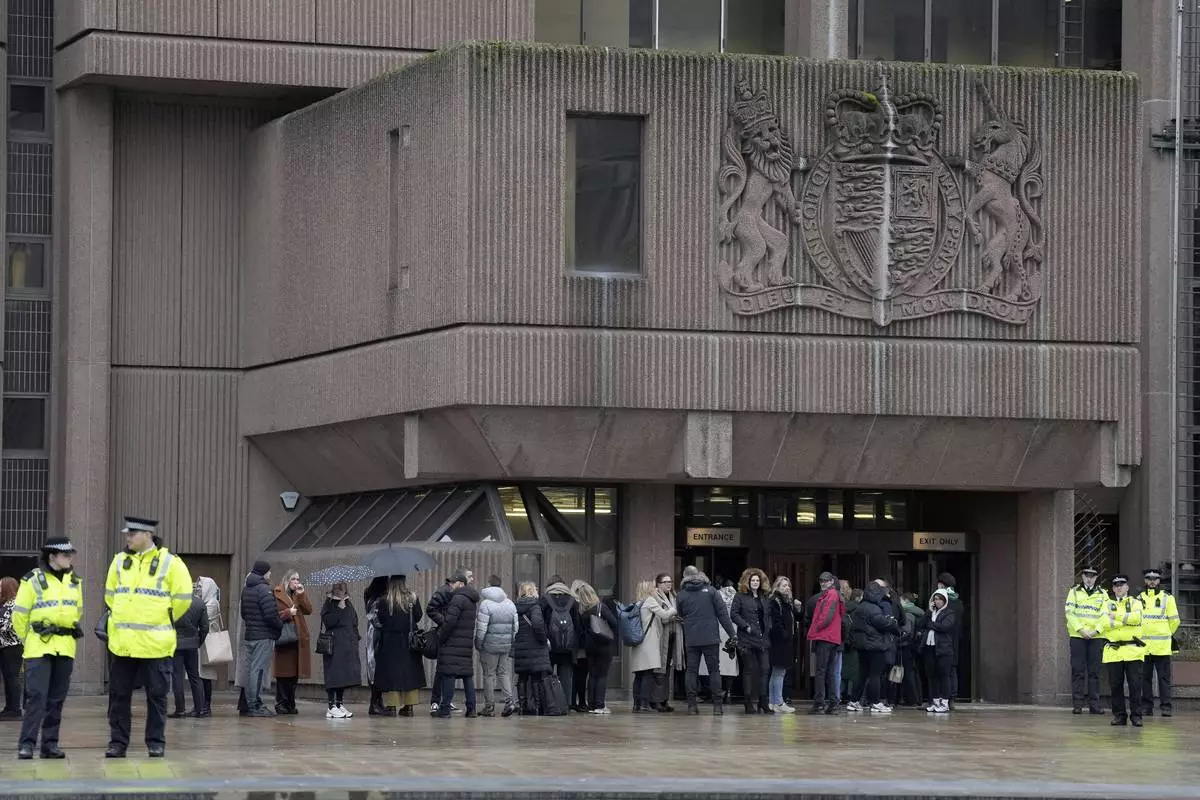
People queue at Liverpool Crown Court in Liverpool, England, Monday, Jan. 20, 2025 where Axel Rudakubana is charged with killing three girls and wounding 10 other people in a stabbing rampage at a Taylor Swift-themed dance class in England last summer.(AP Photo/Jon Super)
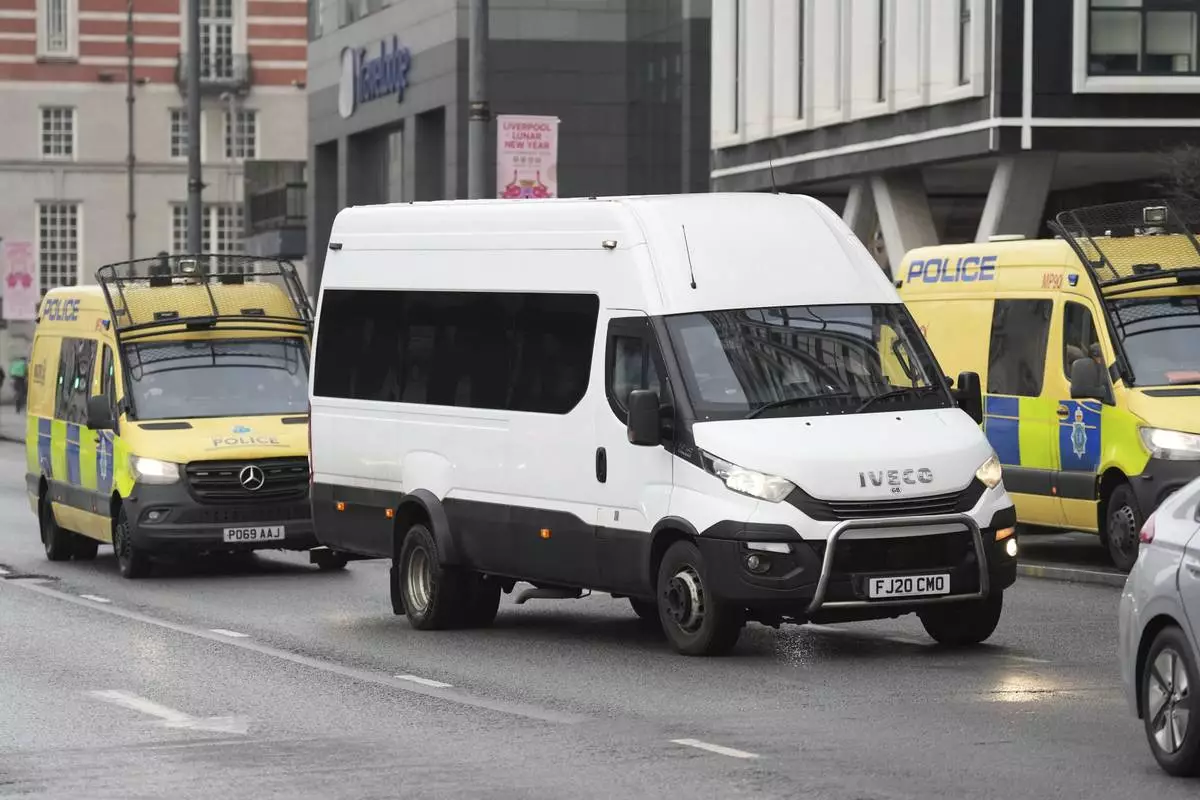
A prison van believed to contain Axel Rudakubana arrives at Liverpool Crown Court in Liverpool, England, Monday, Jan. 20, 2025 where Rudakubana is charged with killing three girls and wounding 10 other people in a stabbing rampage at a Taylor Swift-themed dance class in England last summer.(AP Photo/Jon Super)
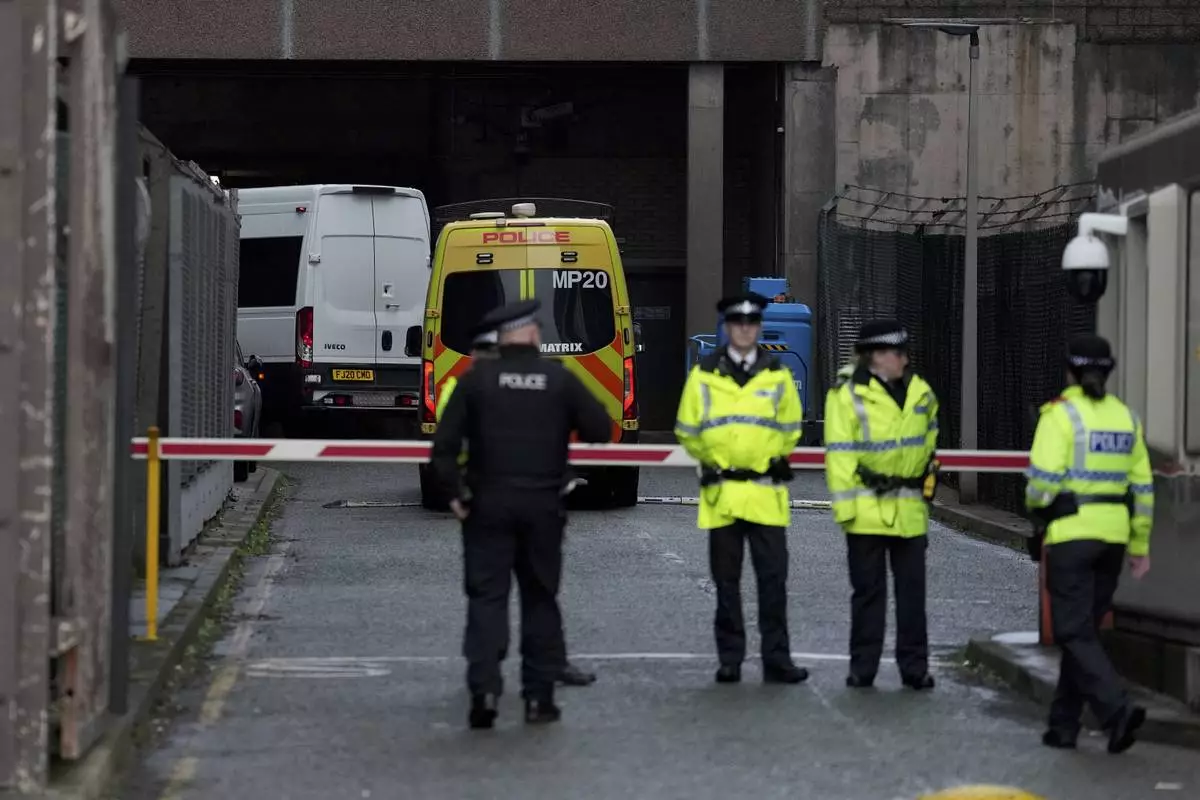
A prison van believed to contain Axel Rudakubana arrives at Liverpool Crown Court in Liverpool, England, Monday, Jan. 20, 2025 where Rudakubana is charged with killing three girls and wounding 10 other people in a stabbing rampage at a Taylor Swift-themed dance class in England last summer.(AP Photo/Jon Super)
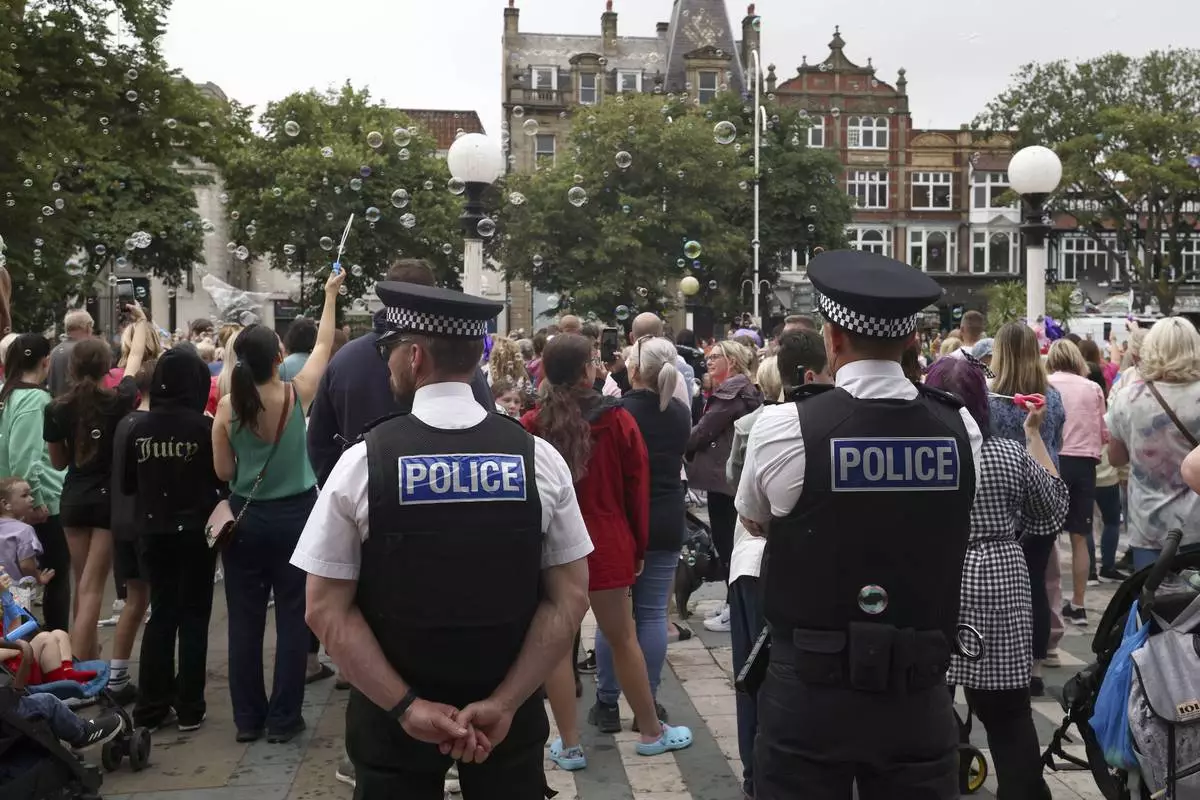
FILE - Police officers watch members of the public outside the Town Hall in Southport, England, Aug. 5, 2024 after three young girls were killed in a knife attack at a Taylor Swift-themed holiday club the week before. (AP Photo/Darren Staples, File)
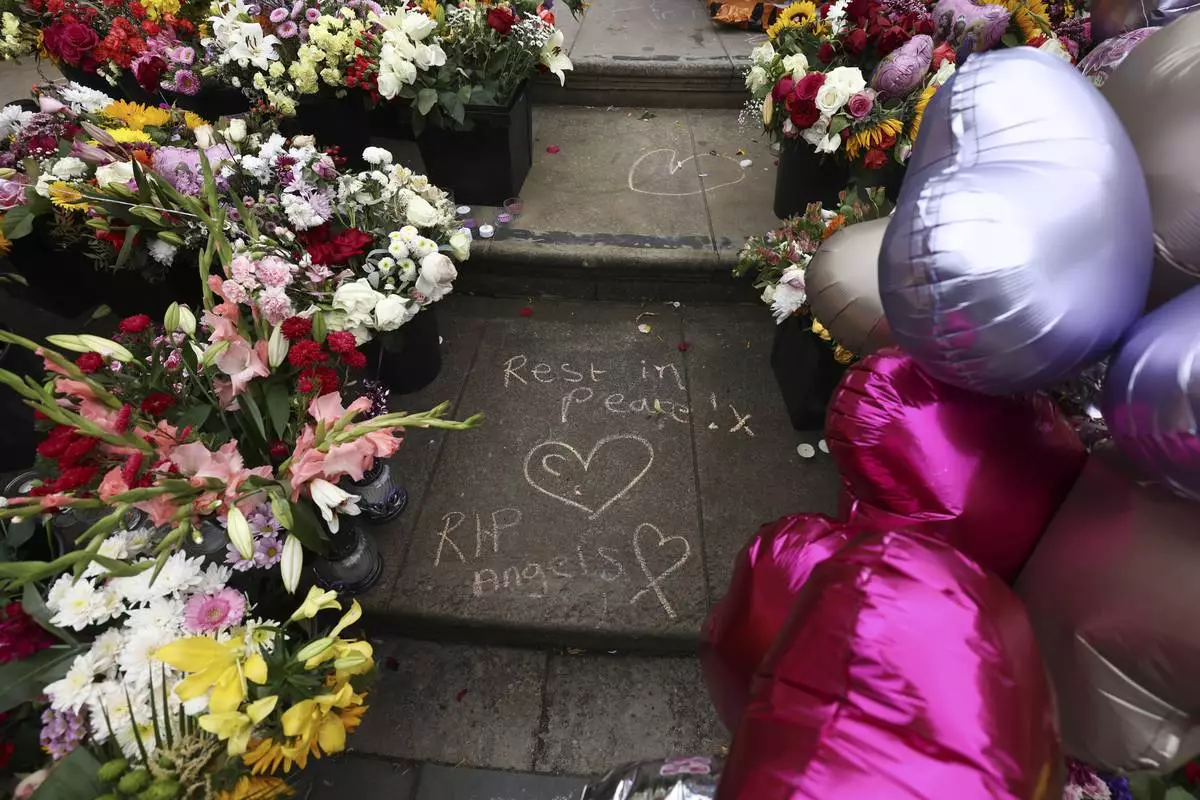
FILE - Tributes are seen outside the Town Hall in Southport, England, Aug. 5, 2024 after three young girls were killed in a knife attack at a Taylor Swift-themed holiday club the week before. (AP Photo/Darren Staples, File)














